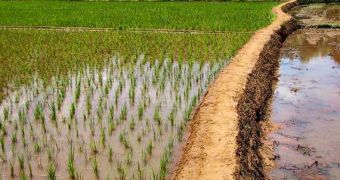According to a new study carried out by researchers working with the Potsdam Institute for Climate Impact Research and the Potsdam University, the environmental shifts brought forth by global warming are bound to toy with the Indian monsoon.
To cut a long story short, India's farmers will find that they can no longer rely on the monsoon in order to grow crops, seeing how rainfall patterns are to be dramatically altered.
This will in turn impact on the country's economy, simply because the lack of fresh water for agricultural purposes will considerably reduce yields.
Several simulations carried out by these researchers indicate that, given the predicted increase in average temperatures worldwide, India is quite likely to witness a drop of 40%-70% in rainfall.
Apparently, such a drop in rainfall is unprecedented, meaning that, since the 1970s and up until present days, the India Meteorological Department holds no records of similar weather manifestations.
Specialists explain that, although changes in the Indian Monsoon are already observable, the situation will only get worse as the years go by.
Thus, these changes are to become ever more poignant as the 21st century comes to an end, and the 22nd century should be expected to foster severe changes in monsoon rainfall.
“Indian summer monsoon (ISM) rainfall is the major prerequisite of agricultural productivity in the region, and its variability severely affects the livelihoods of a large share of the world's population,” reads this study into how climate change will influence Indian agriculture and economy.
Furthermore, “While average ISM rainfall has been relatively stable during the past century of direct observations, rising trends have been observed in the annual number of extreme rain events.”
Although nobody can say for sure how the monsoon in various parts of India will respond to global warming, specialists warn that “severe failures” in its usual pattern will soon become rather obvious.
The study was published in today's issue of the journal Environmental Research Letters.

 14 DAY TRIAL //
14 DAY TRIAL //